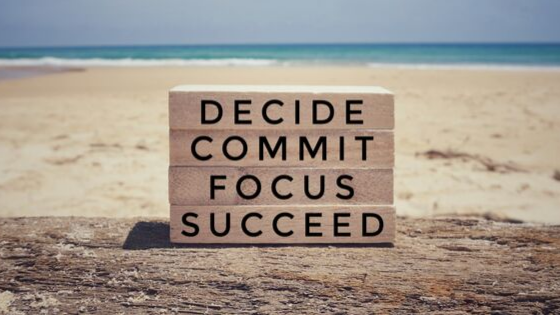
This article is part three of a four-part series on how to influence your interviewer. If you haven’t read parts one and two, check them out here. Remember, the Four C’s of Influence are Competence, Confidence, Commitment, and Connectedness. Let’s dive into “Commitment!”
Most of us spend years with companies. Therefore, saying “yes” to a job offer represents a long-term commitment. Consider that a handful of interviewers meet with you over a few total hours and based on that, make an offer in what both sides hope to be a long-term employment relationship. An analogy would be like going on three dates and then getting married! There is undoubtedly a leap of faith organizations make when an offer of employment goes out. Knowing this, as a candidate, you want to give your interviewer every indication that you’ll be “in it” for the long haul.
Here’s how to demonstrate commitment in an interview:
- Show enthusiasm and mean it. First and foremost, your energy is going to speak louder than your words. You can’t fake passion. You either have it for the organization, or you don’t. My recommendation is that you not interview at places that don’t genuinely light you up. So assuming that you’re excited about the prospect of working for the company you’re sitting with, tell them! Say something like, “I always dreamed of working for ABC Company because…” and then insert the reason why.
- Speak passionately about the organization’s vision and mission. When you connect your desire to support an organization’s vision and mission, you’ll be several steps ahead of most candidates. In my years of interviewing candidates, I found about 50% are just looking for a job that fits their skills. They are indifferent about who they support. Keep in mind that organizations interview lots of people, all who are qualified for the role. Given two equally qualified candidates, they’ll pick the one excited about the organization and aligned to the mission because it speaks to potential engagement. Engaged workers are more likely to put in discretionary effort to advance the goals of an organization.
- Talk about your long-term goals. For several reasons, organizations are concerned about employee longevity and turnover. It takes approximately 12 months for most employees to become highly effective in a new position. Also, consider the fact that it is expensive to hire new talent. Being short-staffed can be burdensome on existing employees, and constant turnover slows goal attainment. For these reasons, companies want some assurance that employees will stick around 2-5 years to make your hire “worth it.” Therefore, speak with intentionality around sticking around. Say something like, “After my first year, I hope to be fully on-boarded and making impactful progress. Then in years two and three, I plan to …” Saying this will communicate that you’re committed to the company for many years to come, which is music to an interviewer’s ears.
To positively influence your interviewer, you’ll need to demonstrate your level of commitment to the organization, and the mission. Then, ensure you address your plan for longevity at the company. Good luck!

